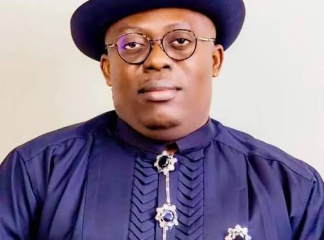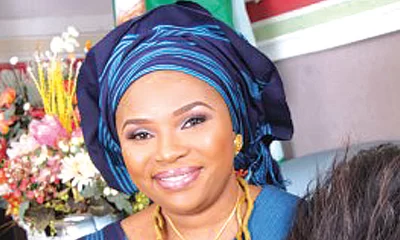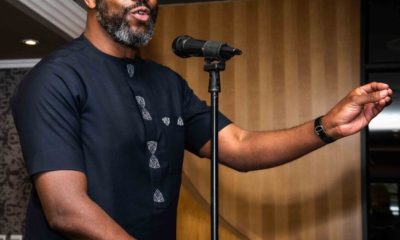Sports
The influence of sports in Nigeria goes far
Published
8 months agoon
By
Cyril Dibia
Sports play an integral role in Nigerian society, impacting the country’s economy, national identity, health, education, and cultural heritage. National delegations have achieved immense success across various sporting disciplines, with football, athletics, boxing, basketball, and traditional sports wielding substantial influence. In fact, sports are deeply ingrained in the fabric of Nigerian society. This sector, including sports betting, generated over $150 million in revenue in 2021, and nowadays employs tens of thousands across the country.
Beyond economic contributions, sports unite Nigerians across ethnic and religious divides and provide opportunities for national glory through competitions like the Olympics. As they also promote health, youth empowerment, education, and cultural preservation in Nigeria, this article delves into the most impactful ones.
The Beautiful Game
Football is Nigeria’s national sport and most popular sporting discipline. The dominance of football in Nigeria is underpinned by the achievements of the national team, local leagues and clubs, and widespread grassroots following.
The Nigerian Professional Football League features 20 club sides with passionate local fan bases. Enyimba FC and Kano Pillars are among the most successful clubs, lifting the CAF Champions League trophy multiple times. These professional clubs provide employment opportunities for thousands of Nigerian footballers as well as betting opportunities for those who use the most reliable bookmakers.
At the grassroots level, football academies give Nigerian youth access to quality training and potential career pathways. Football leagues also exist for school-aged children. These programs promote education, health, and discipline among Nigerian youth.
Sprinting to Glory
Nigerian athletes have excelled in sprints, long-distance running, and field events for decades. From 1960s stars like Modupe Oshikoya to today’s legendary sprinters, Nigerian athletics heroes have inspired generations.
At the Olympics, Nigeria has won 12 medals in athletics – the most in any sports category. Chioma Ajunwa became the first Black African woman to win an Olympic gold medal when she claimed victory in the long jump at Atlanta in 1996. Nigerian sprinting greats like Davidson Ezinwa, Osmond Ezinwa, and Chidi Imoh dominated Asian athletics for over a decade.
Nigeria’s athletics culture promotes participation in sports nationwide. Primary and high schools compete in interstate athletics championships, while corporate track and field contests also attract masses of participants. These athletes promote healthy living and drive youth engagement in sports.
Blood, Sweat, and Gloves
The grit, determination, and perseverance exemplified in boxing resonate with the Nigerian spirit. For decades, Nigerian boxers have battled against the odds to achieve international boxing glory.
In 1964, Nigeria’s Josiah Tongolo Amaechi became the first-ever African boxer to win an Olympic medal, claiming lightweight bronze in Tokyo. Then, Dick Tiger won the world light heavyweight title in 1962 and became a household name in America. And modern icons like Samuel Peter, Celestine “Schoolboy” Babayaro, and Anthony Oluwafemi “The Fist of Fury” Joshua have carried the legacy.
Nigerian Boxers are usually favored by most professional tipsters and Grassroots boxing academies advocate discipline, personal development, and self-defense among youth. Boxing promotes physical fitness and mental strength against daily struggles – invaluable skills for the country’s youth.
The Rising Sport
Basketball’s popularity is rising rapidly among Nigerian youth, influenced by local sports icons making their mark internationally. In 2015, Nigeria’s men’s basketball team became the first African nation to qualify for the Olympics since 1992. Miami Heat star Precious Achiuwa and Utah Jazz power forward Udoka Azubuike are among 10 Nigerians playing in the prestigious NBA.
Last but not least, Nigerian women are also excelling, with Promise Amukamara becoming the first Nigerian WNBA player in 2022. Basketball promises to continue captivating Nigerian youth and developing future generations.
Preserving Culture: Traditional Sports
From wrestling to polo, and archery to mountaineering, Nigeria has a rich heritage of traditional and indigenous sports that differ between its over 300 ethnic groups. These historical pastimes promote cultural diversity and identity.
In northern Nigeria, for example, traditional wrestling such as Kokawa remains immensely popular. Dambe boxing – incorporating kicking and punching – has West African origins. Mock stick fighting called Abidan is practiced among men, building strength and teamwork.
By sustaining these cultural practices through youth participation and engagement, the values and identity of Nigeria’s diverse ethnicities endure. Traditional sports have stood the test of time and continue to celebrate Nigerian culture.
To wrap things up, sports wield remarkable influence in the Nigerian society. From enhancing socio-economic opportunities and development to promoting national pride and cultural diversity, sports are intricately woven into the fabric of the nation. The passion and talent that reveals itself in arenas across the nation will ensure that the country continues to have some of the top leagues to bet on through the best betting brokers and remain a force across sports for generations to come. By investing in athlete development programs and grassroots infrastructure, the future looks bright for Nigerian sports.
Trending

 Featured4 days ago
Featured4 days agoAGAIN! Another Commissioner resigns in Rivers

 Aviation6 days ago
Aviation6 days agoKeyamo engages Air France-KLM, advocates affordable low fare offers

 News3 days ago
News3 days agoYahaya Bello’s Wife, Amina Oyiza Bello disqualified from being appointed Judge

 Featured6 days ago
Featured6 days agoAnambra State gets new Police Commissioner

 Business2 days ago
Business2 days agoMTN Group CEO canvasses regulatory harmony across Africa

 Covid-191 week ago
Covid-191 week agoHow big pharma paid us to vaccinate children—Pediatrician

 Crime4 days ago
Crime4 days agoUpdate: I was kidnapped, laced with explosives to rob bank – Plateau suspect

 Football7 days ago
Football7 days agoArsenal takes title race with Man City to final day of Premier League season




